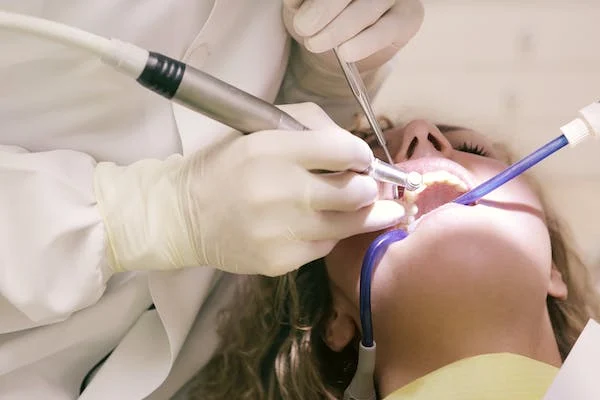Teeth cleaning has long been more than a simple hygiene routine—it is a practice deeply embedded in cultural traditions, spiritual beliefs, and even historical significance across the globe. From the ancient civilizations of Egypt to the modern practices seen in diverse societies today, the act of caring for one’s teeth has been intertwined with both ritualistic meaning and functional necessity. Exploring the connection between oral health and cultural practices reveals a fascinating journey through history, traditions, and evolving perspectives on wellness.
How Do Cultural Practices Influence Teeth Cleaning Rituals Around the World?
Throughout history, various cultures have developed unique practices to maintain oral health, many of which were influenced by environmental resources, spiritual beliefs, and social norms. These practices often went beyond the pragmatic need for cleanliness and hygiene, morphing into cultural rituals that carried symbolic meaning and represented a connection between the individual and their community.
- India: In India, the practice of using twigs or “chewing sticks” for cleaning teeth has a deep-rooted history. These sticks, typically from neem, babul, or other trees, are known for their antibacterial properties. The use of these twigs was passed down through generations as a common method of oral hygiene.
In some regions, using a neem twig is not only seen as a way to clean the teeth but also as a ritual to start the day. In Hindu culture, it is believed that brushing one’s teeth is necessary for spiritual purification before engaging in any religious activities, such as prayer.
- Ancient Egypt: Ancient Egyptians are credited with being some of the earliest pioneers in oral hygiene. They created rudimentary toothpastes from a combination of crushed pumice, mint, and powdered ashes. The Egyptians also used toothpicks made of metal and ivory to clean their teeth. However, more interestingly, oral care in ancient Egypt was linked to preparation for the afterlife.
Egyptians believed that maintaining healthy teeth was essential not only in life but also for the soul’s journey after death. This belief underscores the deep connection between oral health and spiritual practices in ancient Egyptian culture.
- Indigenous Practices in Africa: In some African cultures, teeth cleaning is a communal ritual, often performed at specific milestones in life, such as coming of age. The cleaning methods can include the use of plant-based powders and sticks, as well as rituals performed by healers or elders. These practices carry spiritual meaning, often related to the preparation of an individual for important life transitions or the attainment of wisdom.
- Japan: In Japan, there exists the concept of “shining teeth” (歯光, hamikoshi), a cultural ideal that emphasizes the importance of clean, healthy teeth. The ritual of cleaning teeth in Japan has evolved, with traditional methods combining modern technology with ancient practices.
The Japanese have a deep-rooted belief that oral hygiene is crucial for overall health, and the act of brushing one’s teeth is seen as both an individual and familial ritual. The emphasis on meticulous care mirrors Japan’s broader cultural attention to detail and hygiene.
These examples illustrate how cultures around the world have developed diverse rituals for teeth cleaning, each one reflecting the values, beliefs, and available resources within their society.
What is the Historical Significance Of Oral Health In Traditional Ceremonies?
Throughout history, oral health has often been tied to significant life events, religious ceremonies, and spiritual practices. Many cultures view the state of one’s teeth as a reflection of their overall health, both physically and spiritually. As such, teeth cleaning rituals have often been woven into the fabric of traditional ceremonies, marking important transitions or symbolic acts.
- Rites of Passage: In many African tribes, oral hygiene rituals are incorporated into rites of passage. For example, in some cultures, children are taught the importance of oral health at an early age as part of the transition into adulthood. This may involve the use of special herbs or ceremonial tooth powders, which are believed to imbue the individual with strength, health, and wisdom.
- Religious Significance: In some parts of the world, the act of teeth cleaning is incorporated into religious rituals. For instance, Muslims are encouraged to clean their teeth using a “miswak,” a teeth-cleaning stick from the Salvadora persica tree, before praying. The miswak is considered both a hygienic tool and a religious practice, symbolizing purity and cleanliness before engaging in spiritual activities.
- Funeral and Afterlife Beliefs: In ancient cultures, like that of Egypt, teeth were seen as important for the afterlife. Ancient Egyptians believed that one’s ability to enjoy life after death was partially contingent on the care of their teeth, which was why they made sure to treat their teeth well throughout their lives, often mummifying them as part of burial rituals. In some African traditions, teeth and their care are also linked to an individual’s journey into the afterlife. These cultural practices reflect the idea that oral health transcends mere physical health, touching upon the realm of the soul.
Why are Teeth Cleaning Rituals Considered Symbolic In Some Cultures?
Teeth cleaning rituals are not always purely for hygiene; in many cultures, they are symbolic acts that represent broader themes of purity, respect, and spiritual balance. These practices go beyond the physical act of cleaning to convey deeper cultural values.
- Purification: In many cultures, the act of cleaning one’s teeth is seen as a way to purify the body and spirit. In Hinduism, as mentioned earlier, cleaning one’s teeth before engaging in prayer is considered an act of spiritual purification. This practice mirrors the broader Hindu belief that cleanliness is not just a physical act but also a mental and spiritual one. The ritual of cleaning one’s teeth is thus a necessary prelude to engaging with the divine.
- Respect and Social Status: In some cultures, teeth cleaning rituals are associated with social status and respect. In certain parts of Southeast Asia, a person’s teeth are decorated or modified as a sign of status or beauty. The act of cleaning these ornamental teeth has deep symbolic significance, as it is seen as a reflection of an individual’s respect for their heritage and traditions. Similarly, the condition of one’s teeth can symbolize wealth and social standing.
- Respect for Nature: Many indigenous cultures place a strong emphasis on the respect and use of natural resources in oral health rituals. Using plant-based materials, such as twigs, herbs, and roots, for teeth cleaning represents a connection to the land and a respect for nature’s ability to provide for human needs. This not only reinforces the importance of the environment but also aligns with a holistic view of health, where body, mind, and nature are interconnected.
How Does the Connection Between Oral Health and Cultural Practices Vary Globally?
While the importance of oral health and its connection to cultural practices is a shared theme worldwide, the specific practices and the significance attached to them vary greatly across different regions and traditions. This variation can be attributed to a range of factors including geography, religion, access to technology, and historical context.
- Western vs. Non-Western Practices: In many Western societies, oral health is often viewed as primarily a medical or health-related matter, focusing on hygiene and prevention of disease. Brushing with toothpaste and regular visits to the dentist are commonplace. However, in non-Western cultures, oral health rituals may have a more profound spiritual, social, or ceremonial role. In regions such as Sub-Saharan Africa and South Asia, teeth cleaning practices can be highly symbolic, often linked to coming-of-age rituals or religious observances.
- Modernization and Tradition: In some parts of the world, traditional teeth cleaning rituals have evolved in response to modernization. While the use of miswak or chewing sticks may still be practiced in certain regions, these methods have often been combined with or replaced by modern toothbrushes and toothpaste. Despite these changes, the underlying cultural significance of teeth cleaning remains intact, emphasizing hygiene, spirituality, and social responsibility.
- Cultural Syncretism: The globalization of dental practices has led to the blending of traditional and modern approaches in many cultures. For instance, in countries like Japan and India, ancient teeth cleaning rituals coexist with contemporary practices. This cultural syncretism allows for the continuation of age-old customs while embracing modern advancements in dental health.
The connection between oral health and cultural practices is a fascinating and multifaceted subject. From the ritualistic use of twigs in ancient India to the symbolic importance of teeth cleaning in African and Asian ceremonies, the act of caring for one’s teeth has served as a cultural expression of health, spirituality, and social values across centuries.
While the tools and methods may have evolved over time, the deeper meanings attached to these practices reflect the enduring belief that oral health is not just about hygiene, but also about purity, respect, and connection to the world around us.
Whether as part of a religious ritual, a rite of passage, or a cultural tradition, the act of teeth cleaning continues to serve as a powerful reminder of the link between body, mind, and culture.
Why Cascade Dental is Your Trusted Partner in Oral Health and Wellness
At Cascade Dental, we understand that oral health goes beyond just keeping your teeth clean—it’s about fostering overall well-being and a sense of confidence in your smile. Our team is dedicated to providing personalized dental care that aligns with both your health needs and your lifestyle.
What sets us apart is our approach to integrating advanced technology with compassionate care, ensuring that every patient receives the most effective treatment while feeling comfortable and supported. Whether you’re seeking a routine cleaning or more specialized care, we offer services that go beyond traditional dentistry, including:
- Comprehensive Oral Health Assessments: We use state-of-the-art diagnostic tools to identify any issues before they become serious, helping you maintain optimal oral health.
- Cosmetic Dentistry Services: From teeth whitening to veneers, we offer a range of aesthetic treatments that can enhance the natural beauty of your smile.
- Preventive Care Plans: Our preventive approach, including regular cleanings and patient education, helps to reduce the risk of dental issues down the line.
With Cascade Dental, you’re not just visiting for a check-up; you’re building a long-term partnership with a team that genuinely cares about your smile and your overall health. Call us today!




